Case 12
- New Zealand Authors
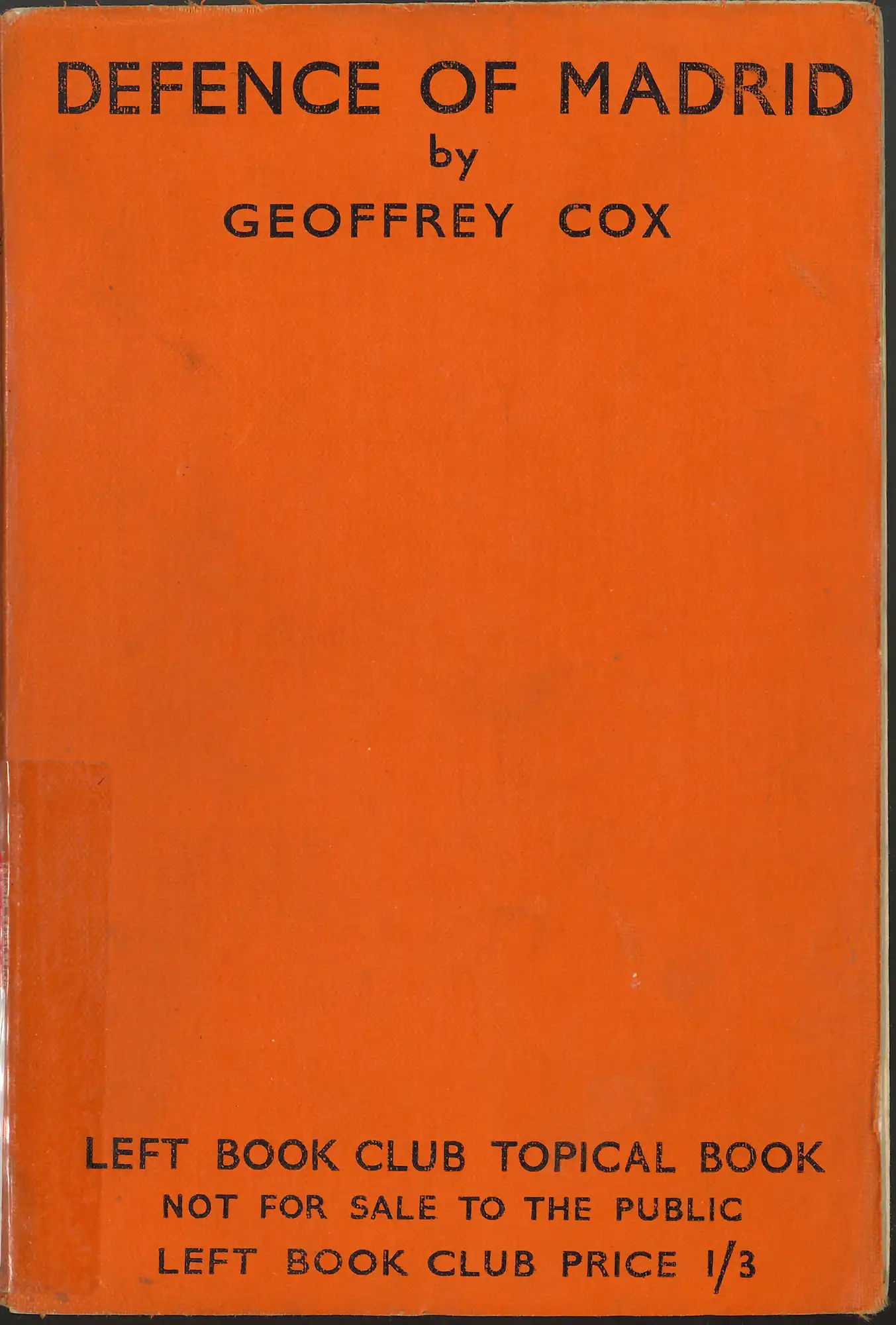
Geoffrey Cox, Defence of Madrid. (1937). LBC 946.081 COX
Geoffrey Cox (1910-2008) studied law and history at the University of Otago. He was editor of the Critic and the annual Review. A Rhodes scholarship took him to Oxford in 1932 and while overseas he embarked on tours of Russia, Austria, and Germany, where he witnessed the 1934 Nuremberg Rally. As a reporter for the News Chronicle, he was sent to Madrid, which was then, in October 1936, surrounded on three sides by Franco’s army. At the time, the city’s imminent fall to the fascist forces was widely expected. Cox was present in the city as Republican militias, reinforced by the International Brigades and anarchist militia led by Buenaventura Durruti, mounted an historic defence. After six weeks Cox returned to London and on realising that he would not return to Spain, set about writing his classic Defence of Madrid.
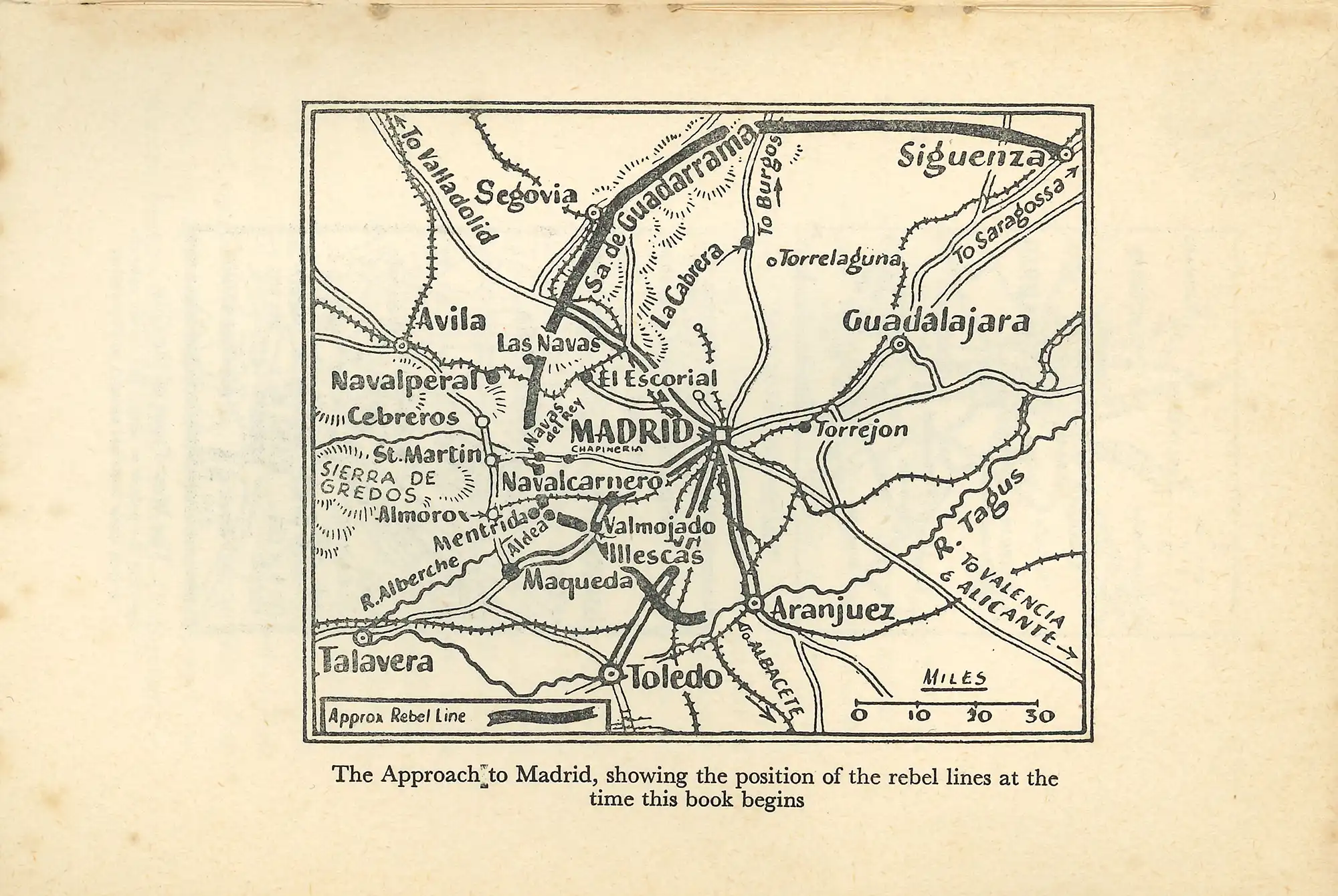
Geoffrey Cox, Defence of Madrid. (1937). LBC 946.081 COX
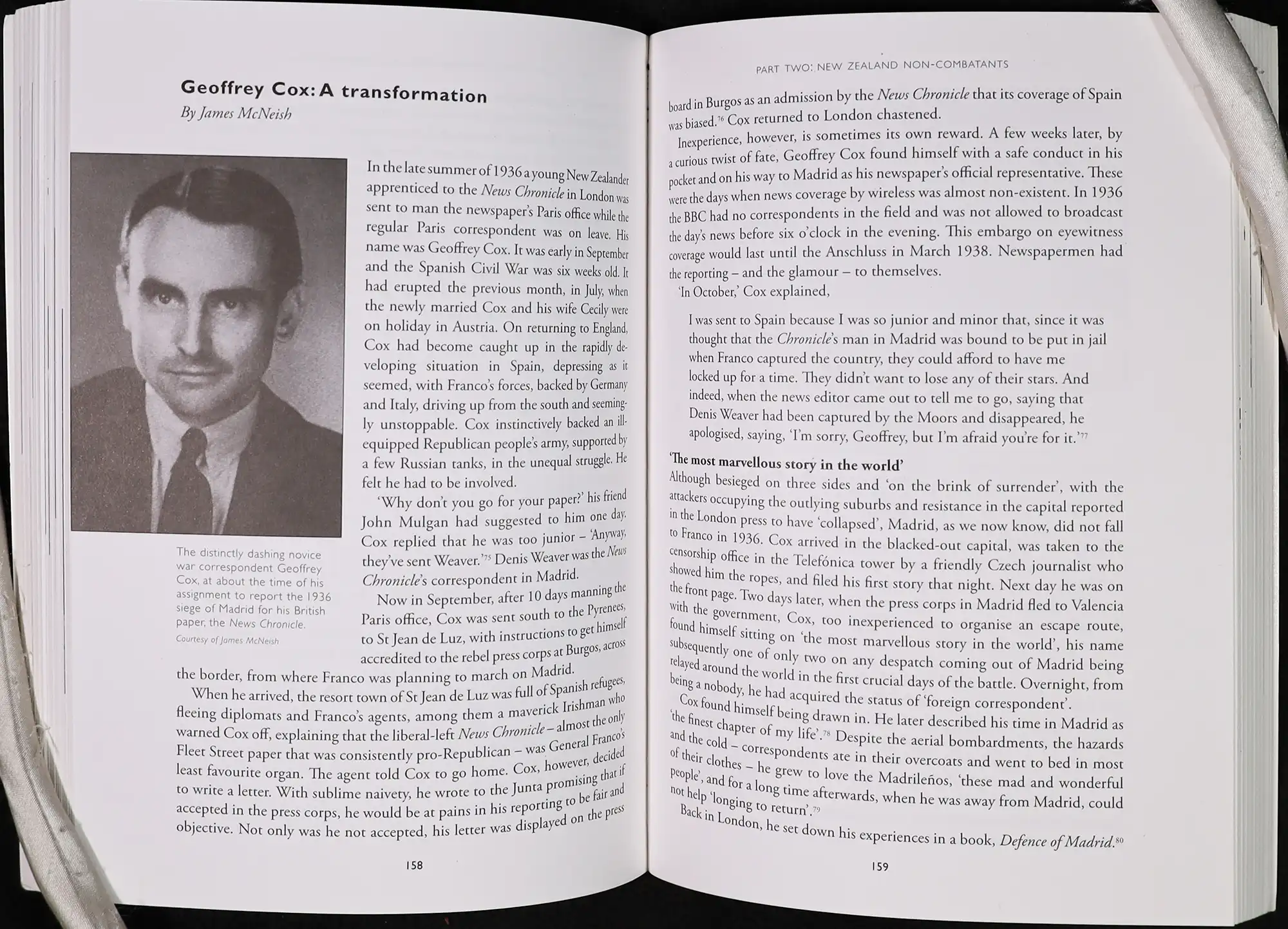
Mark Derby (Editor), Kiwi Compañeros: New Zealand and the Spanish Civil War. Christchurch: Cambridge University Press, 2009. Z946.081 KIW

Mark Derby (Editor), Kiwi Compañeros: New Zealand and the Spanish Civil War. Christchurch: Cambridge University Press, 2009. Z946.081 KIW
Open image in new window
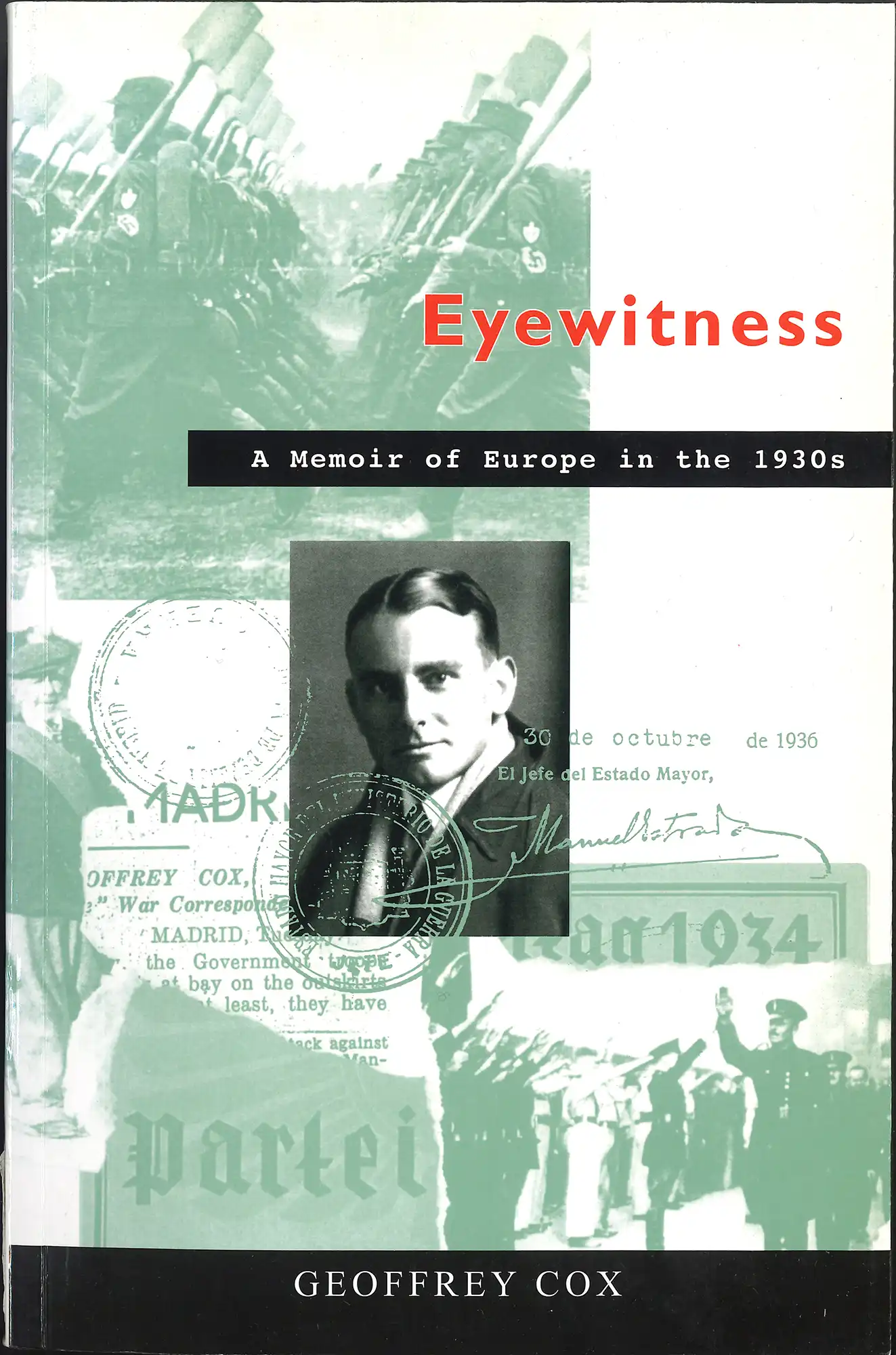
Geoffrey Cox, Eyewitness: a memoir of Europe in the 1930s. Dunedin: University of Otago Press, 1999. Z940.5481 COX

Geoffrey Cox, Eyewitness: a memoir of Europe in the 1930s. Dunedin: University of Otago Press, 1999. Z940.5481 COX
Open image in new window
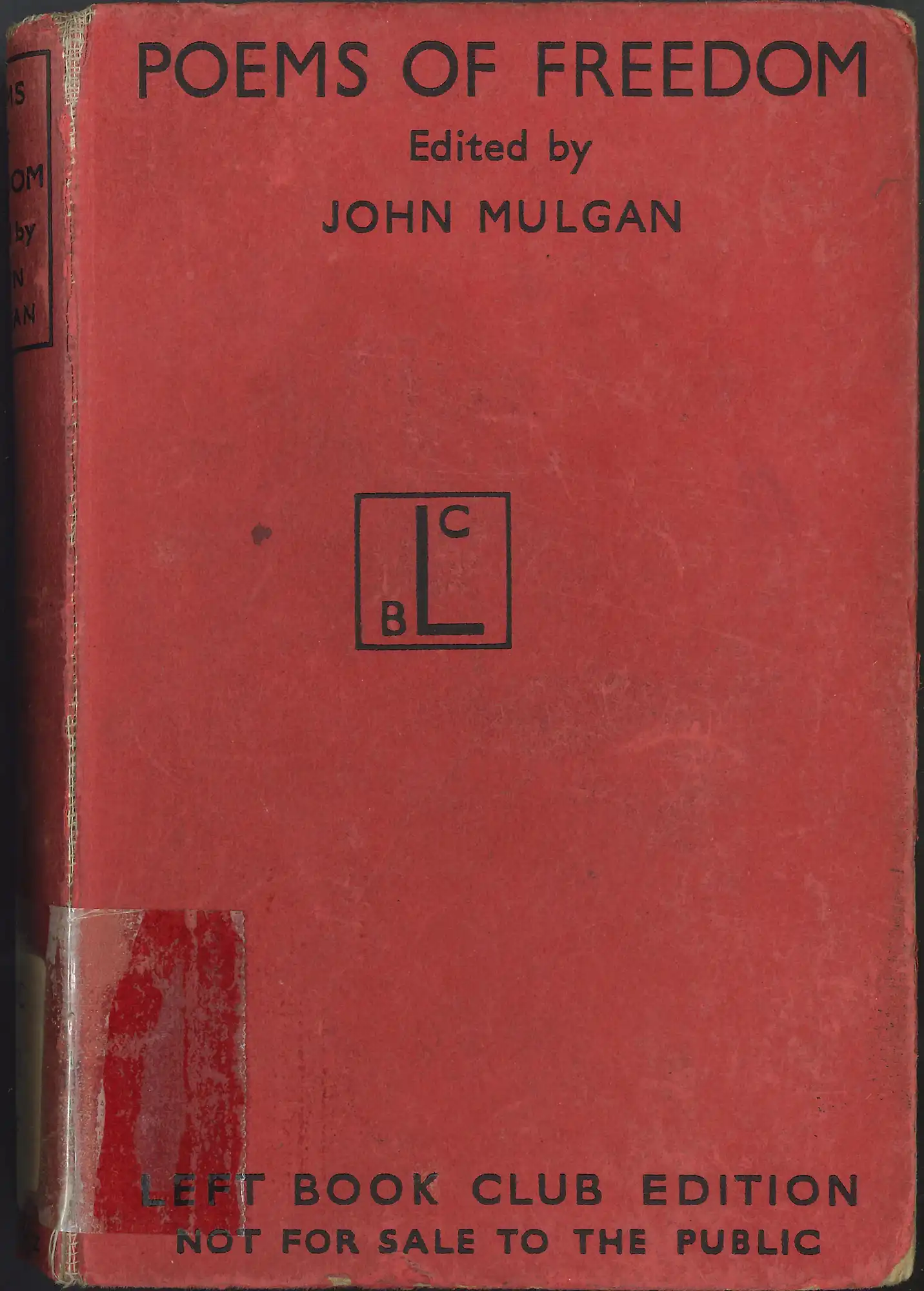
John Mulgan (Editor), Poems of freedom. (1938). LBC 821 POE
Many specialist groups were set up within the Left Book Club, and amongst these was the Poets’ Group started primarily by poets associated with the Communist Party. The group produced a journal, Poetry and the People, later Our Time, and trained its members to recite poetry at meetings of LBC groups, union meetings and the like. They were motivated by a desire to break down the barriers between high and low culture and to connect poetry back to the realities of ordinary workers’ lives. The Poets’ Group anthology, Poems of Freedom, was issued as an Additional book in December 1938, edited by New Zealander and Man Alone author, John Mulgan (1911-1945). It carried an introduction by W. H. Auden.
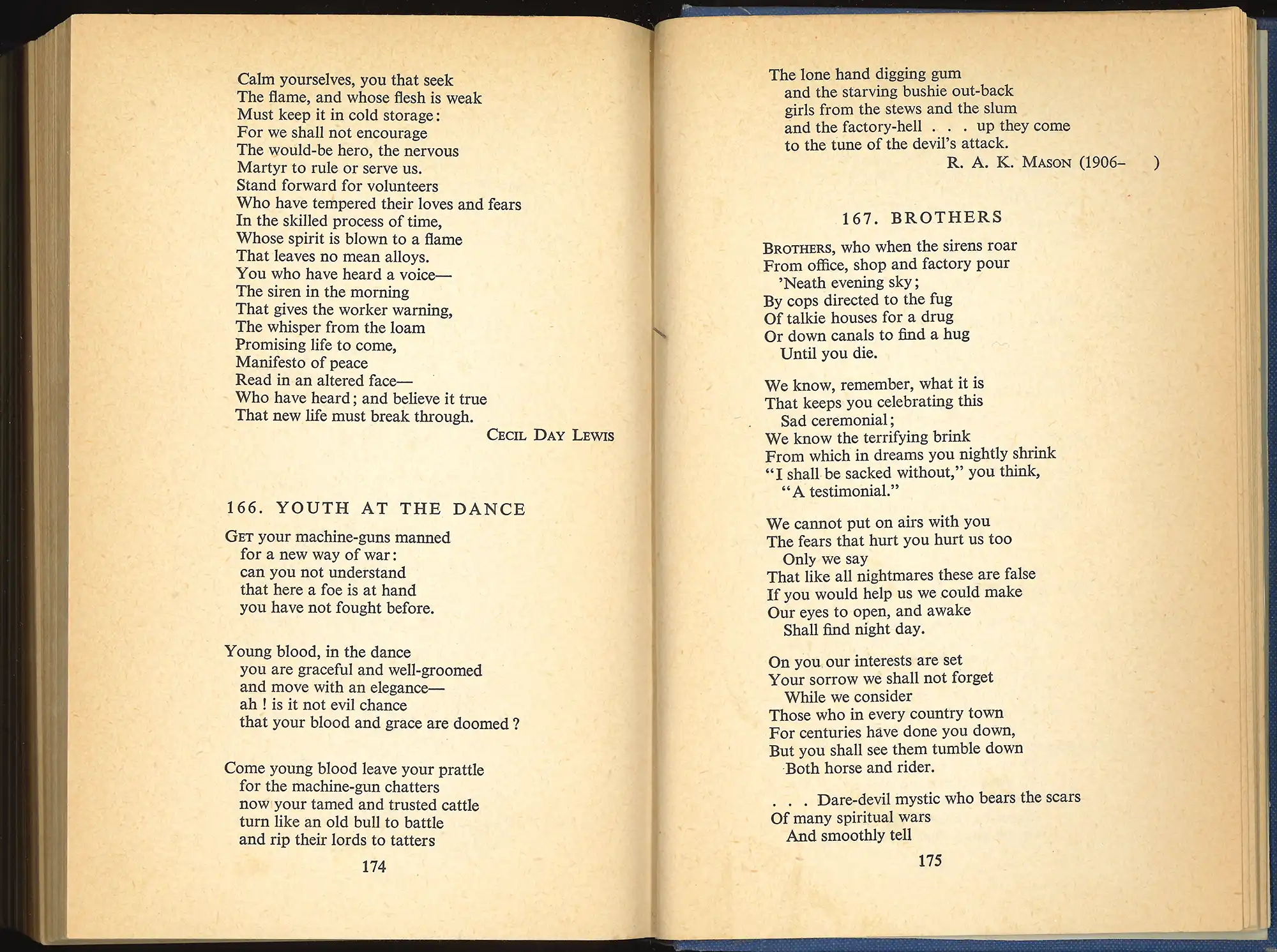
John Mulgan (Editor), Poems of freedom. (1938). LBC 821 POE
Poems of Freedom features New Zealander R.A.K. Mason's poem 'Youth at the Dance', originally published in his 1936 collection End of Day (Christchurch: Caxton Press, 1936).
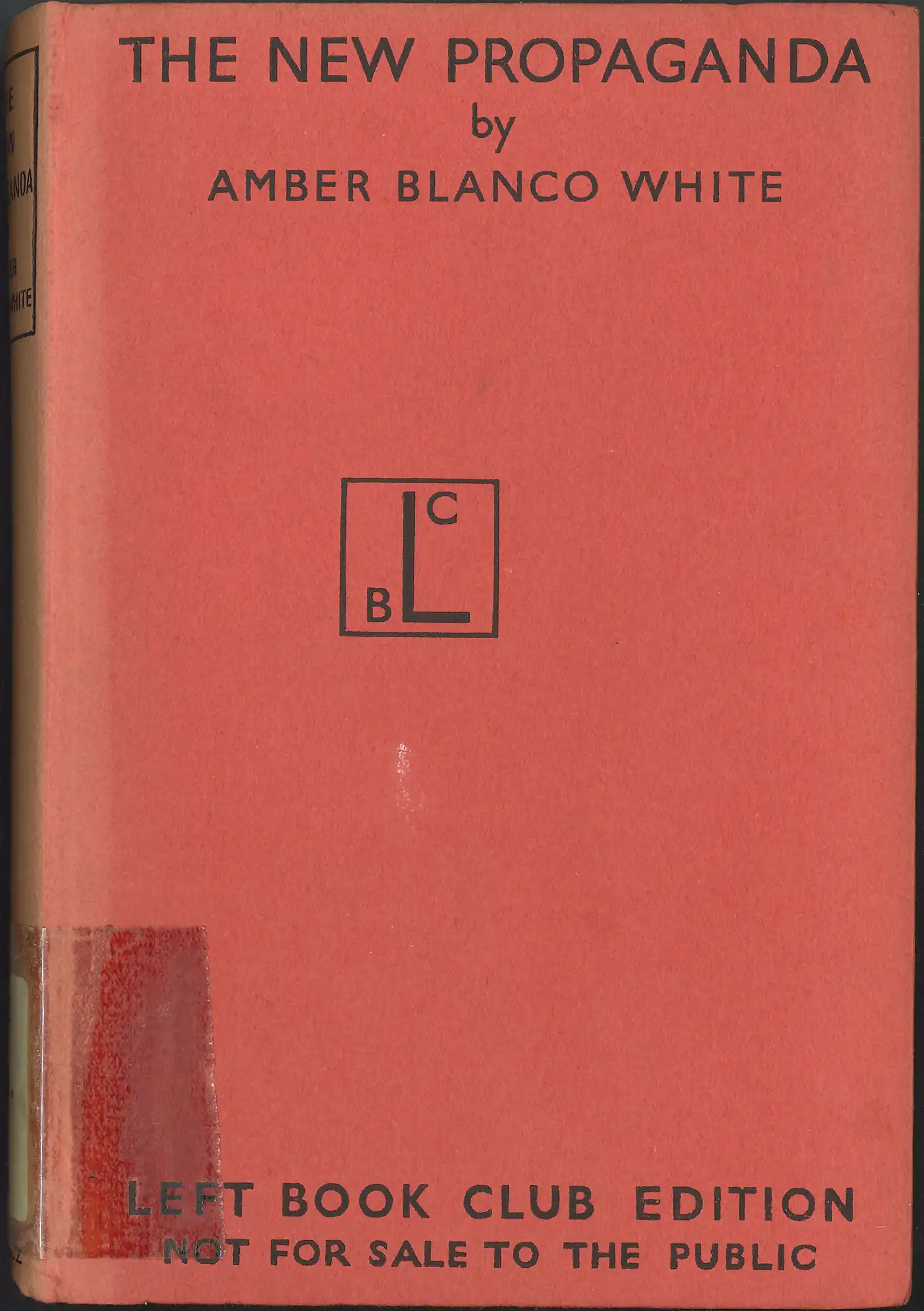
Amber Blanco White, The new propaganda. (1939). LBC 301.15 BLA
Amber Blanco White (née Reeves; 1887-1981) was born in Christchurch, the daughter of prominent Liberal politician and social reformer William, and suffragist and Fabian socialist feminist, Maud Pember Reeves. Emigrating with her family to Britain in 1896, Amber studied at Cambridge where she set up the Cambridge University Fabian Society in 1906. She spent most of her working life as a lecturer in psychology and ethics at Morley College, an adult and further education college in London. She wrote eight books over her lifetime, including four novels. In The New Propaganda, she analyses the structure of propaganda and what makes people receptive to it, drawing on her background in psychology. She asks the question, ‘Can we afford to use Fascist methods?’ for left-wing propaganda.






